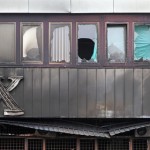 No lease can be written that will answer every post-damage question that will arise. The “law” (whatever that is) provides some gap fillers, but not many. That’s because much of the case law concerns itself with answering epistemological questions – that is, “analyzing the nature of knowledge and how it relates to truth, belief, and justification.” Courts try to divine: “what would the parties have agreed-upon had they known this post-damage question would arise.”
No lease can be written that will answer every post-damage question that will arise. The “law” (whatever that is) provides some gap fillers, but not many. That’s because much of the case law concerns itself with answering epistemological questions – that is, “analyzing the nature of knowledge and how it relates to truth, belief, and justification.” Courts try to divine: “what would the parties have agreed-upon had they known this post-damage question would arise.”
The biggest single factor in determining how things will turn out after a fire, flood, explosion or some other damage-causing event is: do the landlord and tenant still love each other? Do they want to cooperate and get back in business together, or do they want to divorce. If they want to get the property restored as quickly as can happen so that the tenant’s cash register starts ringing and rent checks begin to flow again, they will make that happen and things will work out. If they each want to end the tenancy, they’ll make that happen pretty easily – the issue might be money, and if that is the case, believe it or not, money issues are the easiest to work out. Basically, if a landlord and its tenant share the same post-damage goal, they’ll work it out. [Read more…]
Print




 A couple of odd phone calls came to me over the past few weeks, both dealing with “damage and destruction” of leased space. One dealt with water damage following Hurricane Sandy. The other about a common provision dealing with “killing” a lease if there is damage in the last two years of the term. So, we thought we’d ramble about those two situations and also about the relationship between a landlord receiving adequate insurance proceeds and the obligation to restore the premises. Today, however, in the holiday spirit, we’ll stick to the Hurricane Sandy question.
A couple of odd phone calls came to me over the past few weeks, both dealing with “damage and destruction” of leased space. One dealt with water damage following Hurricane Sandy. The other about a common provision dealing with “killing” a lease if there is damage in the last two years of the term. So, we thought we’d ramble about those two situations and also about the relationship between a landlord receiving adequate insurance proceeds and the obligation to restore the premises. Today, however, in the holiday spirit, we’ll stick to the Hurricane Sandy question. 
Recent Comments